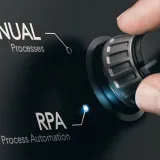


Don’t Blame The Car: In Defence Of Algorithms

Algorithms have had some seriously bad press this year. With headlines like “Boris Johnson blames 'mutant algorithm' for exam fiasco”, “Home Office to scrap 'racist algorithm' for UK visa applicants” and “Algorithms Are Making Economic Inequality Worse”, they have been much maligned of late. In view of all this, it might be easy to conclude that the increasing influence of algorithms on our lives is something we should be wary of, or even actively resisting.
But I’m here to argue that algorithms aren’t some dystopian new threat to our existence. In fact, an algorithm (as defined by Oxford Languages) is simply ‘a process or set of rules to be followed in calculations or other problem-solving operations, especially by a computer’.
And these processes are absolutely everywhere. Just think for a moment about your typical morning…
Like most people, you probably begin your day with a scroll through social media. Whether it’s Facebook, Twitter, Insta or TikTok, most of us are aware that behind the scenes there are sophisticated algorithms at work making sure you’re served with the content that you’re most likely to find engaging.
Perhaps you then get in your car and head to work (admittedly less likely than it once was, but stay with me). You want to check the best route to avoid traffic, so you tap a few buttons on your sat nav. Maybe this one’s less front-of-mind, but that too is, of course, an algorithm (actually a rather famous one), helping you get there on time.
Now en route, you stop at a red light. I’m sure it’s unlikely you’re sitting there thinking about what controls the traffic light schedules. Granted, it’s hardly AlphaGo, but nonetheless it’s another trusty algorithm, ticking along, helping everyone get from A to B.
And this is before you’ve even arrived at work and settled into your day, where you’ll likely be using a huge range of algorithm-laden tools from the likes of Microsoft and Google, which any modern workplace literally couldn’t function without.
Truly an endless number of day-to-day actions you take couldn’t happen without algorithms - from using a computer, to a bank, to a train ticket, or any kind of system at all. They’re so ubiquitous that it’s easy to forget they’re there, quietly facilitating our lives.
So why the bad blood? There are plenty of examples of high-profile mistakes attributed to algorithms from all around the world and I don’t seek to make any partisan comment about the government of the day, but in short, it’s not difficult to see how blaming a (perhaps deliberately opaque) automated process could offer a convenient way to absolve proper human accountability. ‘Don’t look at me, the mysterious black box did it, must be on the fritz again...’
.embed-container { position: relative; padding-bottom: 56.25%; height: 0; overflow: hidden; max-width: 100%; } .embed-container iframe, .embed-container object, .embed-container embed { position: absolute; top: 0; left: 0; width: 100%; height: 100%; }Let’s put this back in the context of that morning scroll through social media. There’s certainly a debate to be had as to whether the objectives that social media algorithms are given are benefiting society or not. It’s something that’s explored quite effectively in the popular new Netflix documentary, The Social Dilemma, so rather than rehash the points here I’ll simply recommend giving it a watch if you’ve not seen it. Upshot is, agree with their aims or not, it’s hard to argue that the social media giants aren’t achieving them incredibly effectively.
Because ultimately that’s all a functioning algorithm does. It achieves a specific, fairly narrow goal, based on the data and parameters it’s given. It’s humans who define these and I’ve never heard a solid argument for removing human responsibility from the equation. Quite the reverse, surely this means people should be highly accountable for creating algorithms transparently and ethically?
Which is why there are no unfavourable news articles or zeitgeist-capturing Netflix docs about sat navs, because the objectives those algorithms are given are uncontroversial.
Indeed, every day, businesses in every industry are finding new ways to harness the power of algorithms to accomplish their own straightforward goals, such as cutting down on manual processes, driving efficiency, finding and better servicing customers, and much, much more.
Which brings us back to you once more, waiting at the lights on your way to work. Let’s say that on this fateful day, as you’re sat there, someone crashes their car into the back of yours. Clearly something has gone very wrong and the consequences could be costly. What would your immediate reaction be?
Would you think ‘it’s not the driver’s fault, it’s that car of theirs, it was the machine that crashed, not them…’? Of course not.
So, next time you see an algorithm taking the fall for some cockup or other, I urge you: don’t blame the car.
On the contrary, maybe you should consider hopping into a car of your own. There’s every chance it could take you and your business exactly where you need to go.
Posted 20 November 2020 by Stephen Miller